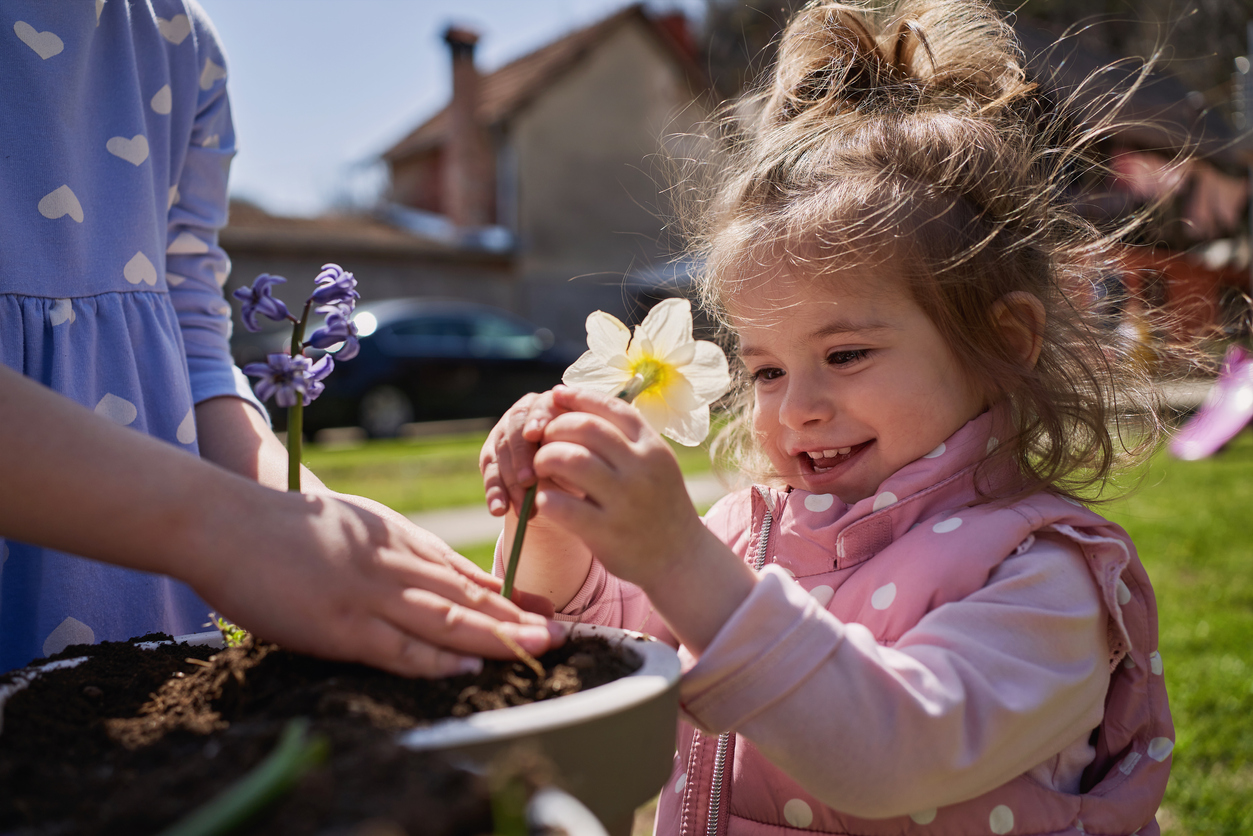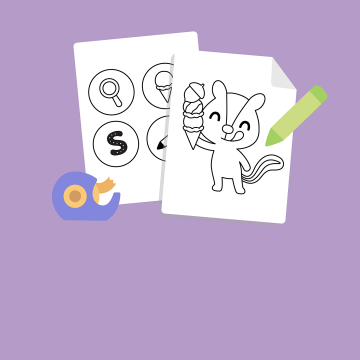- Pen, Meet Playtime

Anyone who’s asked a preschooler about their day knows that they tend to be naturally-gifted storytellers. While practicing technical reading and writing skills like ABCs and phonics are important, it’s fun to create opportunities for literary-minded little ones to expand their imagination, creative thinking skills and word association ability — all skills that are super important for future Pulitzer Prize winners! Read on to learn a few tips for encouraging a love of storytelling through at-home play.
Host a Poetry Cafe
Have a junior Ginsberg in your midst? Host an at-home poetry reading and have them show off their stuff! Try writing a few new poems as a fam using fridge-magnet-poetry rules: cut a few simple words (include images if you like) and put them in a bowl. Have your preschooler pull out a few at random and ask them to rearrange into a poem! They can add on their own words to create a rhyme scheme, or just tell a mini story using the words as prompts. When it’s time for the big show, be sure to dim the lights, put on your coziest black turtlenecks, service sparkling apple juice and snap your fingers for your favorites!
Continue the Story
This classic roadtrip game is also perfect for practicing word association and using descriptive words — key skills for future storytellers! Start a sentence with “Once upon a time there was a … “, and ask your child to continue the sentence from there. Once they’ve got the hang of it, volley back and forth until you’ve reached your destination (or need to pull over with a serious case of the giggles).
Get Retro with Fridge Magnets
There’s just something about the tactile weight & fun colours of those classic alphabet fridge magnets that makes learning phonics fun. Putting together words on the fridge is a great way for them to practice the relationship between sounds and letters … even if the words wouldn’t quiiiite make it to the dictionary! As your kiddo is putting together words, real or imaginary, see if you can sound them out together. The colours will also come in handy: ask if they can think of a word that starts with the letter and is that same color (for example, “apple” for a red letter A, “banana” for a yellow letter B, etc.).
Yes, and …
This is a great storytelling hack, inspired by a classic improv technique. As we know, preschoolers love to tell stories. To get them to expand on their train of thought and level up their creativity, try “yes, and”-ing them! As they do in improv, make sure you’re saying “yes!” and asking follow-up questions to whatever your preschooler tells you … no matter how wacky! For example, if they’re going on about a trip their imaginary friend took to the moon, ask questions like “are they doing any shopping while they’re there?” or “what did they pack in their suitcase?”. This exercise will encourage creative thinking skills and build confidence in coming up with ideas on the spot!
A Different Kind of Storytime
Every child has a favorite bedtime story they could recite by memory (and we’re guessing you can too). Next time they reach for their trusty bedtime book, ask if they want to create their own unique story using the pictures on each page! As you flip through, ask them to look at the illustrations and describe something new or different that might be happening. (Maybe Winnie the Pooh isn’t looking for honey in the honey pot … maybe he’s hunting for Piglet’s missing toy!) This will help build their descriptive and narrative skills, all while keeping things interesting (and keeping you from nodding off after the umpteenth retelling of Goodnight Moon).


